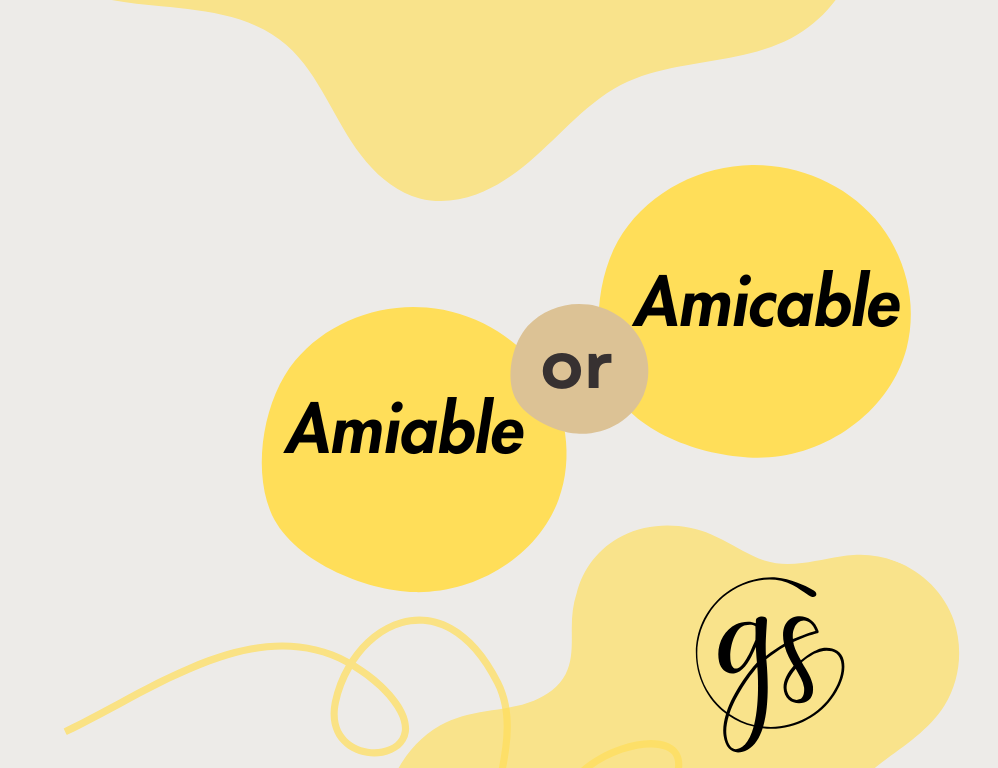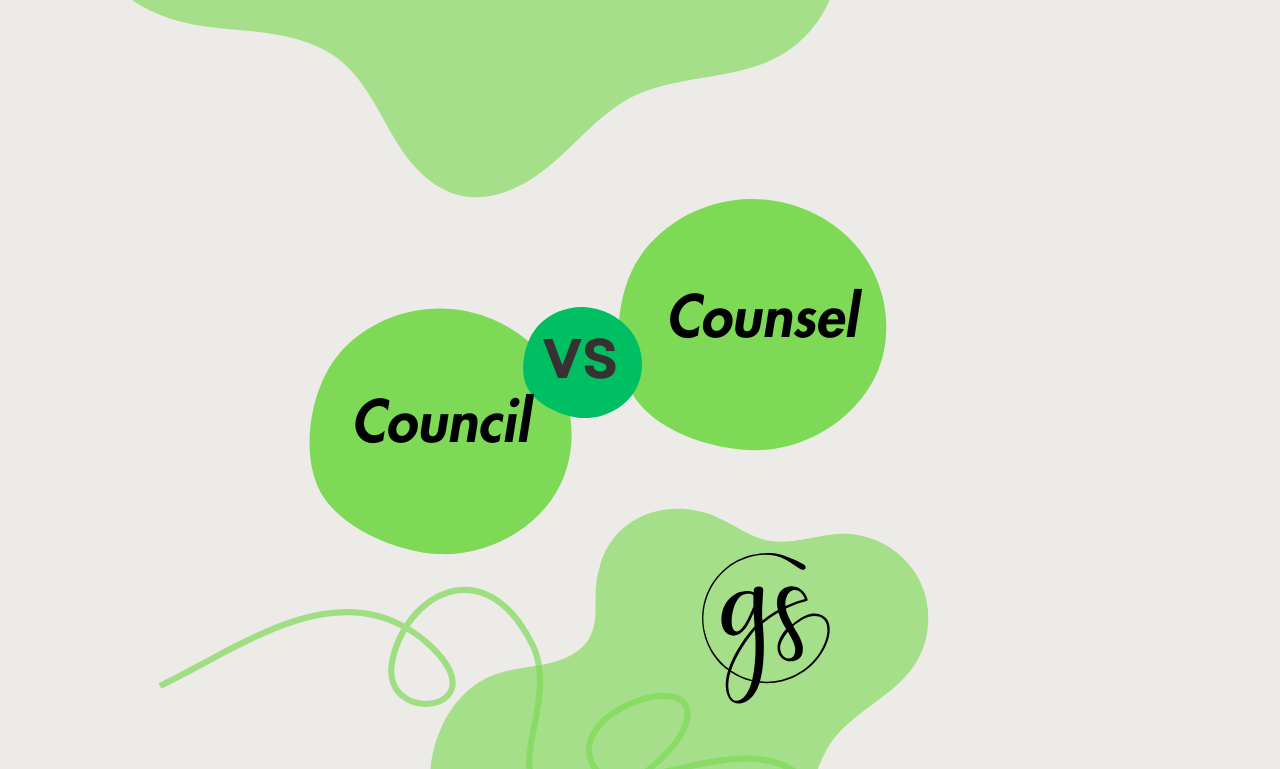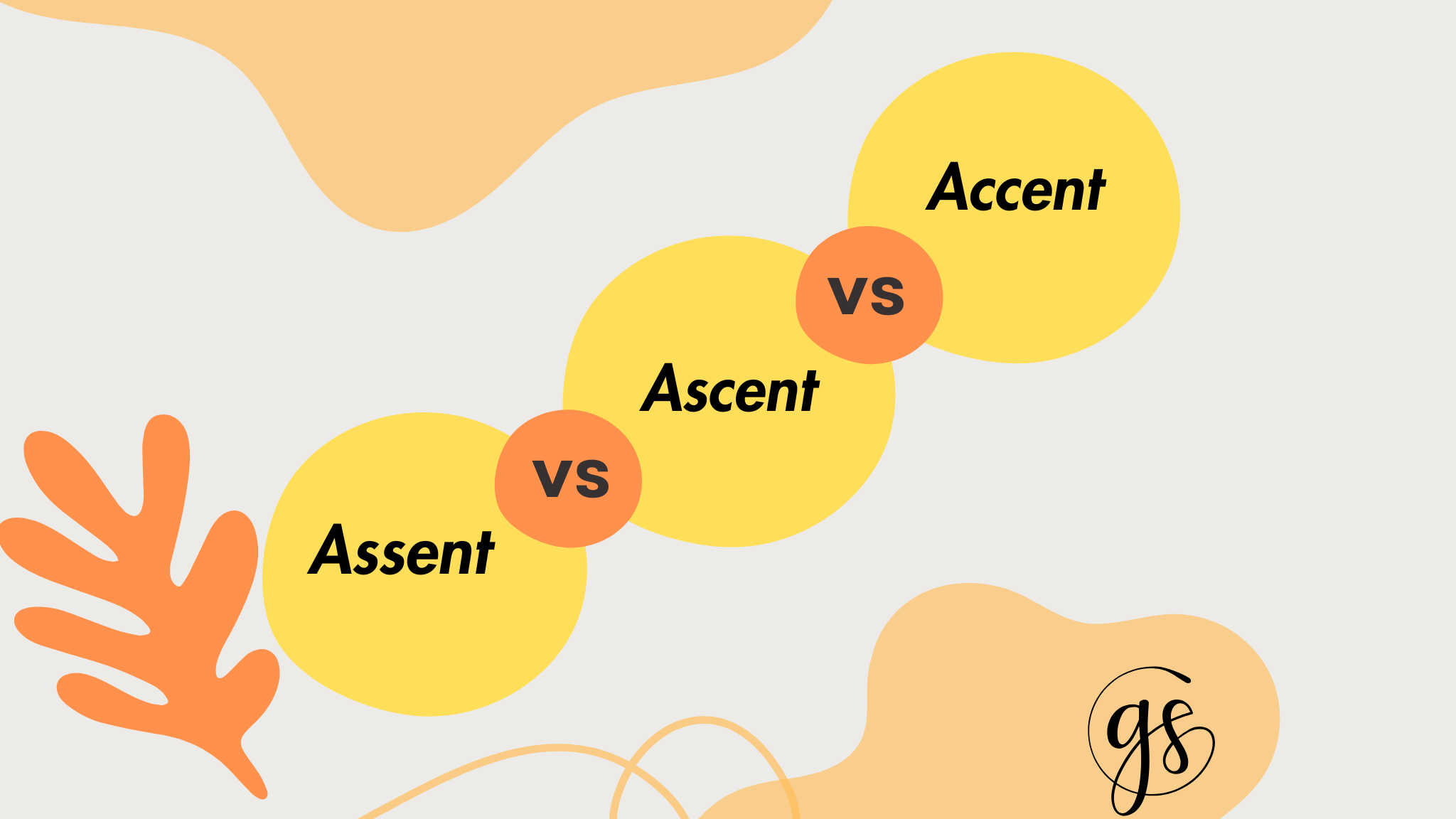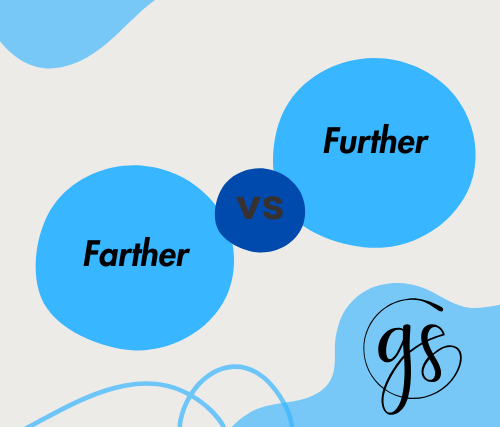Introduction( Amiable and Amicable) :
In our daily conversations, we often encounter words that sound similar but have different meanings. Two such words are amiable and amicable. Both come from the Latin word amabilis, meaning lovable. However, they are used differently in language, which reflects the complexities of human relationships. Understanding when to use amiable or amicable can improve our communication.
Amiable vs Amicable (definition + origin):
Amiable
Amiable describes a person who is friendly and pleasant. An amiable person attracts others with their warm personality .
Latin Roots: “Amare” (to love) + “-abilis” (able to be).
First Use: The term “amiable” first appeared in English around the late 14th century, meaning “friendly” or “lovable.”
Origin: The word “amiable” comes from the Latin word “amabilis”, which means “lovable” or “worthy of love.”
Amicable
Amicable refers to friendly interactions or relationships, especially during conflicts.
Latin Roots: “Amicus” (friend) + “-abilis” (able to be).
First Use: This word made its way into English around the 16th century, and it retained the meaning related to friendship or peace.
Origin: “Amicable” comes from the Latin word “amicabilis”, meaning “friendly” or “suitable for friendship.”
When to use amiable or amicable in idioms:
Here are a few idioms and expressions that capture the spirit of when to use amiable or amicable, often describing friendly or harmonious attitudes or relationships:
Amiable:
- A heart of gold : A person who is very kind, caring, and friendly.
- “She has a heart of gold; she always helps others without hesitation.”
- The life of the party : Someone who is very sociable and fun to be around, bringing joy and friendliness to social events.
- “John is the life of the party everyone loves having him around.”
Amicable:
- On good terms :To have a friendly, non-confrontational relationship with someone.
- “Despite the disagreement, they are on good terms now.”
- Bury the hatchet : To resolve a conflict and become friendly again.
- “After years of not speaking, they finally decided to bury the hatchet.”
Example:
The word amiable evokes memories of my grandmother’s warm kindness in her kitchen. Her welcoming nature brought joy to all, teaching me the impact of small gestures. In contrast, amicable reflects a respectful discussion with a coworker during a stressful project. Despite our disagreements, we communicated calmly and collaboratively found solutions. This experience highlighted that relationships thrive not on perfection but on respectful conflict resolution.
Use of “Amiable and Amicable” in sentences:
Amiable:
“Her amiable smile brightened up the room.”
“John is very amiable and always makes new people feel welcome.”
“His amiable nature made him popular with all his classmates.”
Amicable:
“They had an amicable chat and solved the problem without any fights.”
“Even though they disagreed, they stayed amicable and didn’t argue.”
“They had an amicable meeting and decided to work together.”
Use of amiable and amicable antonyms in our daily life:
| Amiable | Amicable |
|---|---|
| Unfriendly | Unfriendly |
| Unpleasant | Unpleasant |
| Irritable | Conflictual |
| Hostile | Argumentative |
| Antagonistic | Uncooperative |
| Aloof | Controversial |
Use of amiable and amicable synonyms in our daily life:
| Amiable | Amicable |
|---|---|
| Friendly | Cooperative |
| Good nature | Harmonious |
| Pleasant | Civil |
| Genial | Cordial |
| Charming | Peaceable |
| Agreeable | Companionable |
Conclusion:
In conclusion, understanding the difference between amiable vs amicable can enhance your communication skills and help you express yourself more clearly. While both words convey a sense of friendliness, they apply to different contexts personal traits versus relationships. By using amiable to describe a person’s character and amicable for situations or agreements, you can avoid confusion and articulate your thoughts more effectively. Remember that choosing the right word not only enriches your vocabulary but also improves your interactions with others. So next time you’re writing or speaking, take a moment to consider which term fits best!
FAQs:
Is amicable only used for friendships?
No, amicable can refer to any kind of relationship or agreement where parties are friendly, not just friendships.
How do I remember when to use each word?
Think of amiable as relating to ‘I’ (people), while amicable relates more to ‘a mutual agreement’ (situations).
What is the form of amiable?
Amiability and amiableness are the noun forms of amiable, and the adverb form is amiably.
Is it correct to say an amiable agreement?
It’s better to say an amicable agreement since you’re referring to the friendly nature of the agreement itself.
When should I use amicable?
Use amicable when discussing relationships or interactions that are friendly, especially during disagreements or negotiations.
Which word does amiable correspond to?
Some common synonyms of amiable are complaisant, good-natured, and obliging. While all these words mean “having the desire or disposition to please,” amiable implies having qualities that make one liked and easy to deal with.




